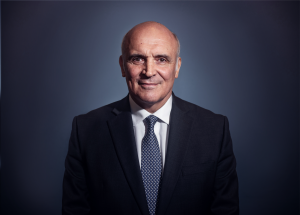The provinces and the city of Buenos Aires received more money last year through 32 special funds than through the federal revenue sharing system, highlighting the distortions that have built up in federal revenue sharing over the past 15 years.
A succession of so-called “patches” shortly after the Federal Revenue-sharing Law was passed in 1988 is the result of the squabbles between the provinces and central government — and sometimes among themselves — that led to temporary solutions through a succession of payments and cutbacks that led to the creation of a parallel revenue-sharing system.
As the number of patches increased, especially from 1991 onwards, the federal revenue sharing system began to be “surrounded” by special funds, each with a different shareout criteria and different legal status, gaining ground at the expense of federal revenue-sharing funds which last year accounted only for 49.47 percent of total resources delivered to the provinces.
Referring to the issue, economist Adolfo Sturzenegger told the Herald that any allocation of resources to the provinces should be made through automatic mechanisms established in the federal revenue-sharing legislation.
According to Sturzenegger, roughly half of the money allocated to specific funds _ that were created to finance the construction of housing, roads, flood prevention works, or to help in the development of specific sectors, as is the case with the Tobacco Fund _ is lost to “bureaucracy.”
Sturzenegger claims that specific funds have often been created to “bail out” provinces in difficult financial situations, and therefore do nothing but encourage provincial governors to make an “irresponsible management” of their finances.
Analyst Federico Marón Giú, with the CIPPEC think tank, told the Herald that if other items such as oil and gas royalties and industrial promotion-related tax breaks, are throw into the equation, the income that provinces receive outside the revenue-sharing scheme is twice as large as that channelled through traditional distribution mechanisms.
Marón Giú called for specific funds to be “gradually eliminated and replaced by more transparent mechanisms” to support activities such as, for instance, tobacco growing in some provinces.
Economist José Luis Espert, with the Espert & Asociados consultancy, told the Herald that the “whole system through which federal resources are distributed to the provinces is arbitrary,” pointing out that “automatic mechanisms are often as bad” as those falling outside the jurisdiction of the revenue-sharing legislation.
He added that the federal government should recover a leading role in dealing with critical issues such as “poverty and extreme poverty, education and public health,” which were increasingly turned over to provincial administrations in the previous decade.
In that sense, Espert said that it was about time for politicians to “start thinking in terms of real people rather than geography,” as he called for the outright “elimination” of the federal revenue-sharing scheme and of all “bureaucracies” which cannot be maintained with resources generated by the provinces.
Referring to existing negotiations to have a new federal tax revenue sharing legislation in place by August 1, as agreed upon in a letter of intent signed with the International Monetary Fund last year, Sturzenegger said he was confident that deadlines would be met, but was sceptic over the content of the new legislation which, he said, would “validate the existing status quo” without introducing major changes.
In that sense, he stressed that no relevant reform in the federal tax revenue sharing legislation would be achieved without pushing a parallel reform in the existing taxation structure.
CIPPEC’s Marón Giú said that the existing proposal contemplates only “minor modifications” in mechanisms through which funds are distributed but fails to tackle the main problems affecting the scheme currently in place, noting that ongoing discussions between federal and provincial government officials are “focused exclusively on the repayment of debts” accrued by provincial governments under the Orderly Financing Programme, through which the federal government bailed out heavily indebted provinces in 2002.
Marún Giú noted that the current revenue-sharing scheme is “pro-cyclic” and therefore does not help cushion provincial treasuries from the impact of foreign crises. The scheme neither offers incentives for the provinces to responsibly handle their finances nor to boost their tax revenues, he added.
Referring specifically to the issue of fiscal responsibility, Espert noted that during the 10 years of the rule of convertibility, the provinces had seen their revenue-sharing income rise by a global 15 billion dollars. “They spent all those funds and took up new debt in that period,” Espert noted, adding that provinces benefited from the partial nationalization of these debts in 2001, later to default on the remaining debt load in 2002 — with a few exceptions, as in Mendoza’s case.
On top of that, Espert recalled, provincial governments issued scrip in 2001 and 2002 — to the tune of 7.5 billion pesos — that was later retrieved by the Central Bank, “and are now pushing for new hikes” in their slice of the revenue sharing pie.
“We (Argentines) have no idea of what has been going on in our country,” Espert concluded.

